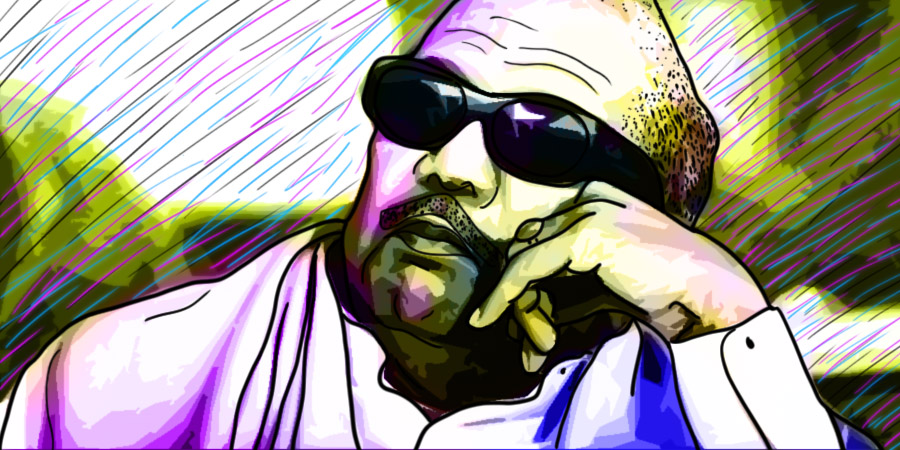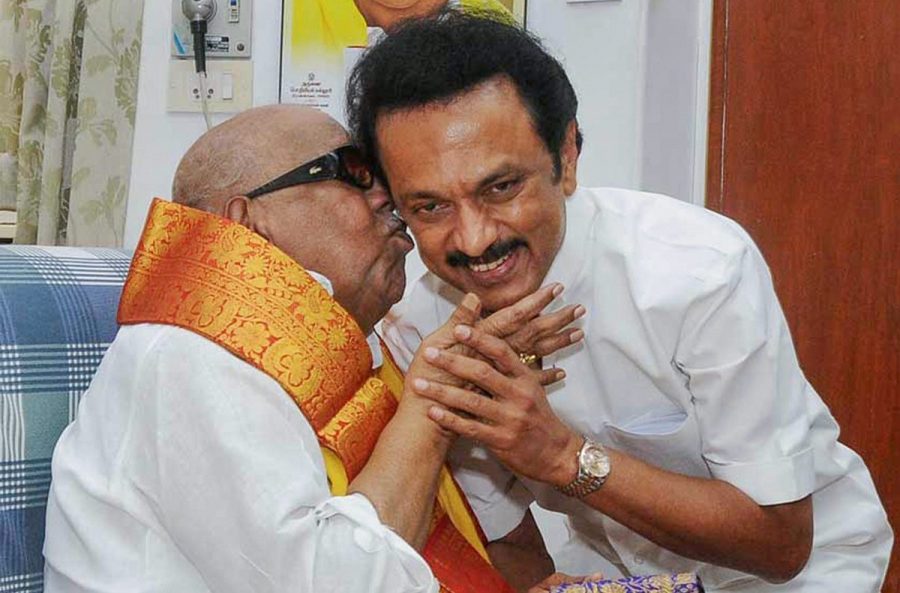
- Home
- India
- World
- Premium
- THE FEDERAL SPECIAL
- Analysis
- States
- Perspective
- Videos
- Sports
- Education
- Entertainment
- Elections
- Features
- Health
- Business
- Series
- In memoriam: Sheikh Mujibur Rahman
- Bishnoi's Men
- NEET TANGLE
- Economy Series
- Earth Day
- Kashmir’s Frozen Turbulence
- India@75
- The legend of Ramjanmabhoomi
- Liberalisation@30
- How to tame a dragon
- Celebrating biodiversity
- Farm Matters
- 50 days of solitude
- Bringing Migrants Home
- Budget 2020
- Jharkhand Votes
- The Federal Investigates
- The Federal Impact
- Vanishing Sand
- Gandhi @ 150
- Andhra Today
- Field report
- Operation Gulmarg
- Pandemic @1 Mn in India
- The Federal Year-End
- The Zero Year
- Science
- Brand studio
- Newsletter
- Elections 2024
- Events
- Home
- IndiaIndia
- World
- Analysis
- StatesStates
- PerspectivePerspective
- VideosVideos
- Sports
- Education
- Entertainment
- ElectionsElections
- Features
- Health
- BusinessBusiness
- Premium
- Loading...
Premium - Events

MK Stalin: Does he measure up to his father Karunanidhi?
For long, Karunanidhi was known as Tamil Nadu’s Chanakya.

M Karunanidhi, in his autobiography ‘Nenjukku Needhi’, has recalled getting inspired by a school lesson on Justice Party leader Panagal Raja. Justice Party was the founding organisation of the Dravidian movement and campaigned on an anti-brahmin plank nearly a hundred years ago. Shifting sides Despite being dismissed by the Congress-led union government in 1976, Karunanidhi put his ego...
M Karunanidhi, in his autobiography ‘Nenjukku Needhi’, has recalled getting inspired by a school lesson on Justice Party leader Panagal Raja. Justice Party was the founding organisation of the Dravidian movement and campaigned on an anti-brahmin plank nearly a hundred years ago.
- Shifting sides
- Despite being dismissed by the Congress-led union government in 1976, Karunanidhi put his ego on the back burner to bounce back to power after his friend and rival MGR parted ways with the DMK.
- Even though the BJP had been the ideologically arch rival of the DMK, Karunanidhi did not mind joining hands with it during 1999-2003 after the United Front Government fell in 1997.
- However, after six years in 2004, the DMK was back again with the Congress and maintained its relationship until 2013. In 2013, DMK quit the alliance over the stand taken by Manmohan Singh in the UNHRC at Geneva over the Sri Lankan Tamils issue.
- After a brief period, in 2016, DMK joined hands with the Congress yet again to face the Assembly election in the state and the relationship continues to date.
In his early teens, Karunanidhi set up a students’ group devoted to those Dravidian ideas. But, in his autobiography, he notes with some self-deprecation that a rival students’ group had emerged under the leadership of another boy in his village. And Karunanidhi was worried that this group would overshadow his own group.
An opportunity presented itself when the rivals had scheduled a play and their lead actor could not be missing on that day. The student Karunanidhi thought up a plan. He offered to play the lead role. His rivals were glad that someone had come to help them out. But they realised soon that there was a price to pay. The quid pro quo was that the rival group would dissolve itself and merge with the group Karunanidhi had formed and led. And the rival group became part of his own. At that age, he had shown a remarkable ability to neutralize rivals and bring people over to his side.
For long, Karunanidhi was known as Tamil Nadu’s Chanakya. He would wait, bide his time, and strike when the moment was right. Karunanidhi’s moves were calculated. They had an overt motive that was obvious and a deeper intent that wasn’t so obvious, quite often. During the 2014 Lok Sabha election campaign, he suddenly seemed to go soft on Modi, only to set tongues wagging. It was momentary but helped to turn the spotlight on the DMK when Jayalalithaa was ramping up her lady-Modi rhetoric.
Since his death, many have wondered if he wouldn’t have been able to take advantage of the fact that the AIADMK is without a towering leader and the regime is seen as doing the BJP’s bidding. Would Kalaignar (Karunanidhi’s title that refers to him as an artiste) have handled the situation better? Hypothetical it may seem, such questions may dog Stalin now and in the future.
The whispers became a chatter since the AIADMK government under the leadership of Edappadi Palaniswami and O Panneerselvam seemed to survive without too much hassle and the DMK could do nothing about it. Barring once during the Assembly session, when Stalin was apparently shoved around by the Assembly security personnel and came out of the legislature with disheveled hair and shirt undone. This was about as far as the drama the DMK could ratchet up. Party leaders, however, defend Stalin saying Karunanidhi would have also waited until the government collapsed on its own so voters would coalesce around the DMK as the only alternative.
Tamil Nadu focused on Assembly elections
While the story all across India has been largely the Lok Sabha polls, in Tamil Nadu, the Assembly bypolls are the dominant theme for political parties. Lok Sabha alliances have been struck with a view to bolster prospects in the Assembly bypolls.
The bypolls were caused by the Tamil Nadu speaker expelling AIADMK MLAs who had joined hands with TTV Dhinakaran. The bypolls are a mini general election. If the DMK wins 20 seats, it could bring down the government and stake claim to form a government. If TTV’s party, the AMMK, wins any seats, then the question will be whether the DMK will take its support in forming the government. For its part, the AMMK has made it clear that the party wouldn’t mind voting along with the DMK in the Assembly to bring down the government.
On his own, TTV won’t be able to move a motion of no-confidence and it would have to be the DMK that would move it. Stalin has made it clear that the DMK alliance would stake claim only if it has a majority on its own in the Assembly.

What Stalin has learned from his father
Stalin has been circumspect so far. He has admitted on multiple occasions that he is no match for his father in literary and language skills. But he has often said that he would never deviate from Karunanidhi’s political line.
It was a rhetorical homage he made to his father while proposing Rahul Gandhi as the DMK alliance’s Prime Ministerial candidate at the beginning of the campaign for the Lok Sabha election. The DMK was among the first and probably the only party outside the Congress to openly say that Rahul Gandhi is their candidate for Prime Minister. Stalin’s father had famously joined hands with Indira Gandhi in 1980 — one of the many flip-flops in tactics he sought to couch with a catchy slogan — whereas during the Emergency he and Indira Gandhi were bitter opponents. He said: “Nehruvin magaley varuga, nilayana aatchi tharuga (Come, Nehru’s daughter, give us stable government)”. Echoing his father, Stalin said, “Rahul Gandhiye varuga, nattukku nallatchi tharuga (Come, Rahul Gandhi, give good government to the nation)”.
Dravidianist, writer and researcher Thirunavukkarasu said Karunanidhi never held grudges and had the charisma to bring back people whom he had opposed in the past. But he would have baulked at cozying up with TTV. “Karunanidhi forgave the Congress for its Emergency crimes. Congress is the grand old party of India with a history and roots in the freedom struggle. He respected the party for its ideology and policies. Even the BJP has an ideology. What does TTV have?” Thirunavukkarasu said.
“Karunanidhi forgave the Congress for its Emergency crimes. Congress is the grand old party of India with a history and roots in the freedom struggle. He respected the party for its ideology and policies. Even the BJP has an ideology. What does TTV have?”
R Kannan, who has written biographies of Anna and MGR, said the decision to face fresh elections was what Karunanidhi would have decided, too. He recalled how Karunanidhi refused support to MGR’s wife, Janaki Ramachandran, who had formed the government after her husband’s death. “She personally called Kalaignar and sought DMK support but Karunanidhi declined,” he said. Though Janaki was able to engineer a majority, the government didn’t last long. And Karunanidhi came back to power after a gap of nearly 13 years. There was no other alternative for Tamil Nadu voters then. Kannan said Karunanidhi himself had told Stalin to form the government only after facing elections and not try a backdoor entry.
Even if the TTV camp supports the DMK, it would be an unstable regime, says A Ramasamy, head of the Tamil department at Manonmaniam Sundaranar University in Tirunelveli, Tamil Nadu. “The DMK would face a lot of criticism. Karunanidhi would have wanted a stable regime,” he said.
Karunanidhi could put leaders of other parties at ease
Thirunavukkarasu says when actor-turned-politician Vijayakanth was a rising star in politics and was talked of as chief minister material, Karunanidhi welcomed him during a meeting, saying “Vaya varungala mudhalvare (Come, future chief minister).” Vijayakanth was immediately put at ease and developed a certain regard for Karunanidhi.
While the present tactics of Stalin likely have the signature of Karunanidhi, what is more important for the DMK is whether Stalin has the personality to adapt and respond to unfamiliar situations in future. A key ability to manage those situations would be if he is able to form relationships and maintain bridges with others. That was an art Karunanidhi was skilled at.
